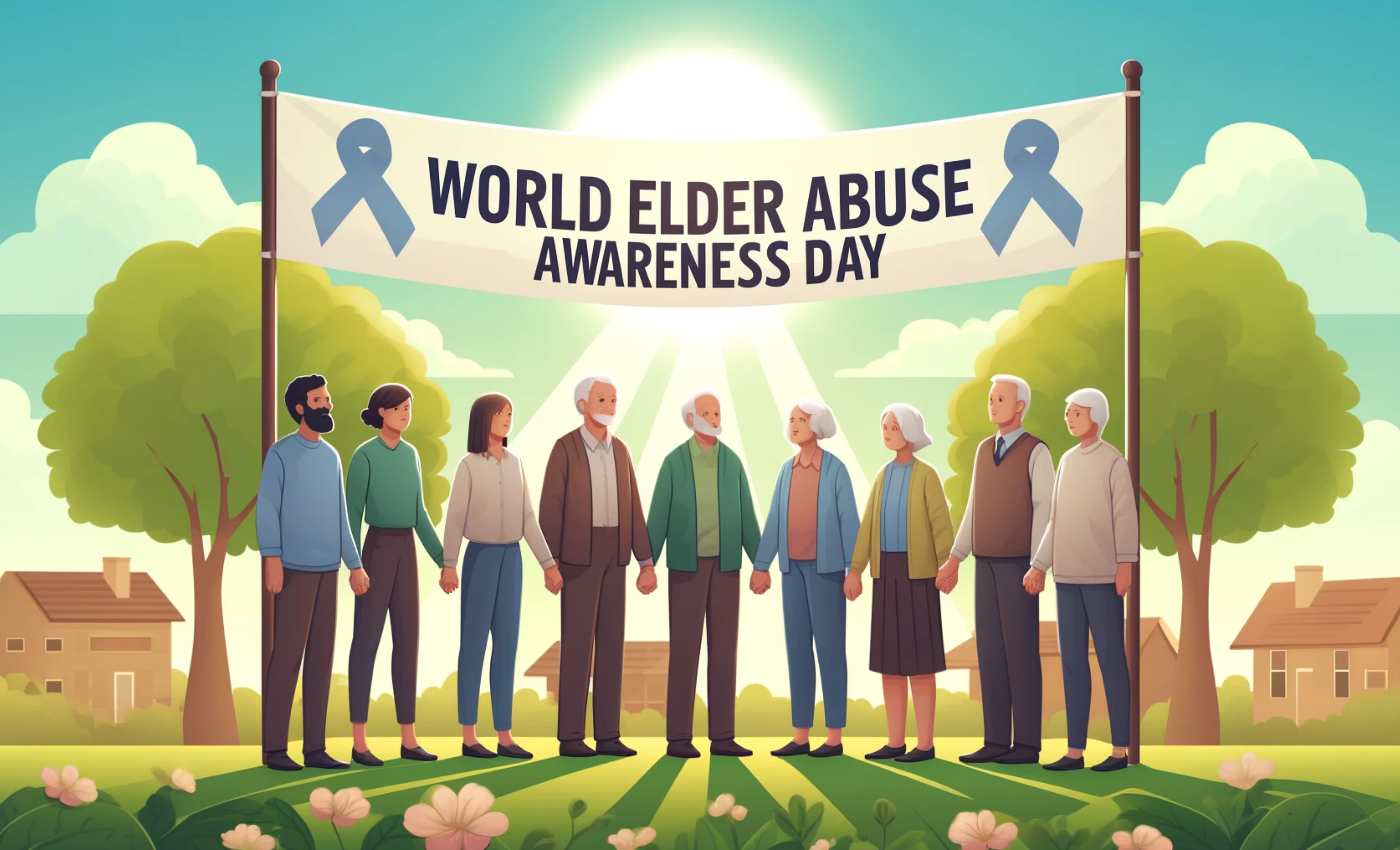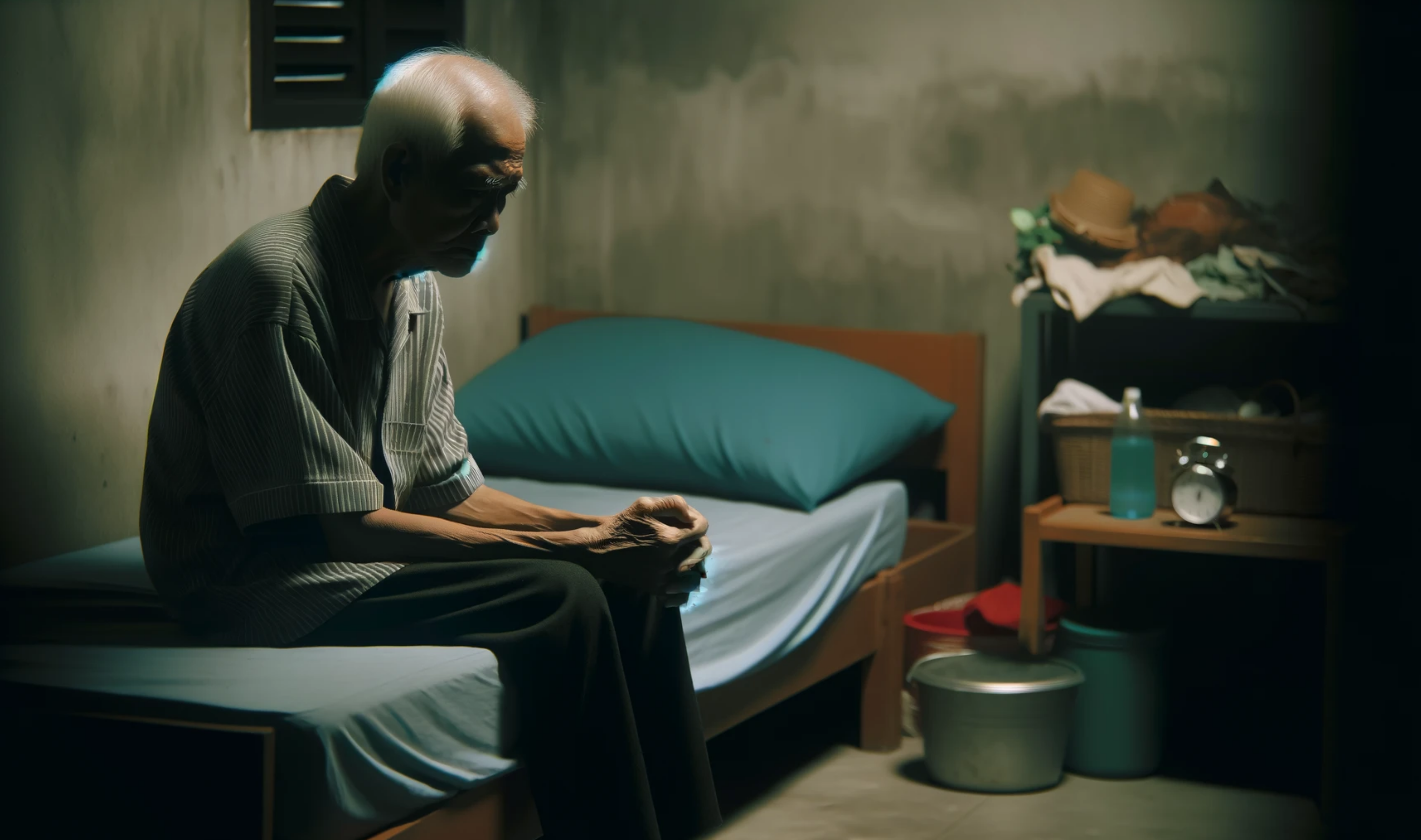
United Against Elder Abuse: Stories of Strength and Hope
“On this Day, I call upon Member States and civil society to strengthen their resolve and redouble their efforts to eliminate all forms of violence and abuse against older people.”
— UN Secretary-General Ban Ki-moon
Mary’s Story: Mary’s son-in-law pressured her into giving him money to help pay off a personal loan, arguing that it would be part of their inheritance anyway, and they were just collecting it early.
Sonia’s Experience: Sonia, who recently moved into a care facility, faces rough treatment from some staff members who complain that she is too demanding and hurt her when assisting her into and out of bed and the bath.
Harold’s Humiliation: Harold’s daughter often ridicules him publicly about forgetting to zip up his pants or mismatching his socks, saying that looking after him is worse than looking after her children.
Jimmy’s Threats: Jimmy threatens to stop visiting his grandmother unless she gives him cash from her wallet or bank account.
Gerry’s Isolation: Gerry, who moved in with his niece, spends most of his time alone in a small room, is not allowed a phone, and has all his mail screened by his niece.
The UN Economics and Social Council defines elder abuse as:
“A single or repeated act, or lack of appropriate action, occurring within any relationship where there is an expectation of trust, which causes harm or distress to an older person.”
Elder abuse can take many forms, as seen in the examples above: physical, psychological, sexual, financial, or spiritual. It can also stem from the failure to provide basic human rights that contribute to well-being, inclusion, health, and dignity. Self-neglect is another form of abuse.
Understanding the Impact
Abuse and neglect are unacceptable in any form, and if not interrupted, they often escalate. Financial and psychological abuse are the most reported type. Documenting the prevalence of elder abuse is challenging due to reluctance to report and lack of standardized definitions and data collection methods. Having said that, though, a 2022 report by the World Health Organization (WHO) indicates that in the wake of the COVID-19 pandemic, about 1 in 6 people aged 60 years and older experienced some form of abuse in community settings during the past year. Closer to home, a 2022 report by the Government of Canada, estimated that 8.2% of older adults in Canada have experienced abuse within the last year.
Who are the Abusers?
Abusers are often known to the older person, typically including family, friends, formal and informal caregivers. However, strangers and institutional abuse also pose significant threats.
Recognizing the Signs
Some indicators of abuse include unexplained bruises and injuries, soiled or bloodied clothes, unpaid bills, missing financial statements, missing personal possessions, changes in personal hygiene and living conditions, malnutrition, weight loss, isolation, changes in personality (especially becoming withdrawn or frightened), overmedication, and broken or missing health aids like glasses, hearing aids, or dentures.
Taking Action
If the person is in immediate danger, call 9-1-1! If not, try to get them alone and discuss what you are noticing. Reassure them that it is not their fault and that you are there to help. Research community resources, and if unsure, contact your local police for guidance on emergency and non-emergency assistance.
Most importantly, do not abandon them. Many older individuals experiencing abuse may hesitate to seek help due to fear of retaliation, being alone, or concern for the abuser. Let them know that you will continue to monitor the situation and be there when they are ready for support. And if the situation worsens and they are in danger, call 9-1-1!
A Difficult Topic, but We Can Make a Difference
Discussing elder abuse and neglect is challenging. With increased understanding and awareness, we can make a commitment to recognize, respond, and report. One day, we may no longer need a World Elder Abuse Awareness Day!
Rhonda Latreille, MBA, CPCA
Founder & CEO
Age-Friendly Business®
Body: The Hidden Toll: How Psychological
Abuse Affects the Body

Psychological abuse, often dismissed as less severe than physical abuse, can have profound and lasting effects on the body.
Chronic stress and anxiety from emotional manipulation, threats, and verbal assaults can lead to serious health issues.
Prolonged exposure to such abuse triggers the body’s stress response, resulting in increased levels of cortisol and adrenaline.
This can weaken the immune system, elevate blood pressure, and contribute to conditions such as heart disease, digestive problems, and chronic pain.
Additionally, the emotional strain can lead to sleep disturbances, weight fluctuations, and a higher risk of mental health disorders like depression and post-traumatic stress disorder (PTSD).
Recognizing and addressing psychological abuse is crucial for both mental and physical health.
Spirit: Find Yourself
“The best way to find yourself is to lose yourself in the service of others.”
Mahatma Gandhi


0 Comments